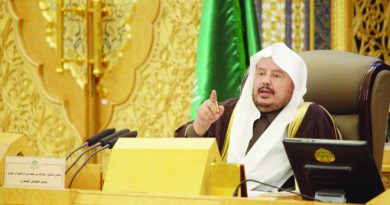Focus on Political Silencing: Saudi Arabia
By Alexander Stringer
Staff Writer
Saudi Arabia has, for some time been the topic of disgust as they continue to abuse and deny the rights of their citizens for swaying even remotely away from the theological absolute monarchy. Once again the world looked on in horror when on 2 January the oil-rich nation announced an execution of 47 Shia, culminating in the highly protested beheading and subsequent crucifixion of Nimr al-Nimr.
In this the largest mass execution in Saudi Arabia since 1980, included mostly Shia Muslims and protestors for governmental reform in the repressive nation, having once again sparked interest by the world in the inner workings of these violations, and how the monarchy is allowed to continue with such violations. Let us thus inspect:
Looking into the political persecution within Saudi Arabia is a tricky subject, since the nation has been known to use irregular detention sites outside of its prisons, which the Islamic Human Rights Commission estimated “putting the actual number of political prisoners at over 30,000” in 2011, the number only having grown since then (though more recent numbers are difficult to find within any level of accuracy).
One of the major reasons why this sort of oppression and violence is so systemic is due to the fact that the state is one that applies Sharia Law (i.e. law as circumscribed by the word of the Quran). This, in turn, allows for an intentionally vague and often broad legal definition of crimes, leading judges to interpret a number of acts as criminal as they see fit, including “breaking allegiance with the ruler” or “trying to distort the reputation of the kingdom,” as Human Rights Watch outlines in their report on the nation.
This sort of broad jurisprudence has not just allowed for the imprisonment of adult dissenters, but the law has been manipulated in order to go after the children of malcontents, with judicial members arguing that, according to HRW, “children can be tried for capital crimes and sentenced as adults if physical signs of puberty exist.”
Moreover, with this level of vagueness, the criminal justice system has been wholly able to impose the death penalty upon those arrested for a variety of crimes, including some that did not involve violence, such as “sorcery,” adultery, and drug offenses.
As mentioned above, almost all of those effected by this scrutiny are Saudi Shia, the minority group that is at religious odds with the Sunni House of Saud. In a 2009 report, HRW found that the oppression has gone so far as to allow the “authorities [to] have arrested and threatened the owners of Shia private communal prayer halls.”
The campaign against the Shia has created such deep-seeded sentiments that it has been observed how the government tolerates inflammatory and intolerant statements by Saudi Sunni clerics directed toward the Shia, while preventing the Shia even from simple acts of religious worship such as praying together.
Now with all of this oppression and violation of rights, it must be considered how so many nations gloss over these facts, as Saudi Arabia has the luxury of being an island floating atop a sea of oil, being the second largest oil-producing nation in the world at some 11.6 million barrels per day. It seems wholly apparent at this point that this oppressive monarchy will be allowed to continue on its path of beheading and imprisoning any that have the gall to question this domineering regime as long as it stays one of the largest suppliers of the world’s oil.


